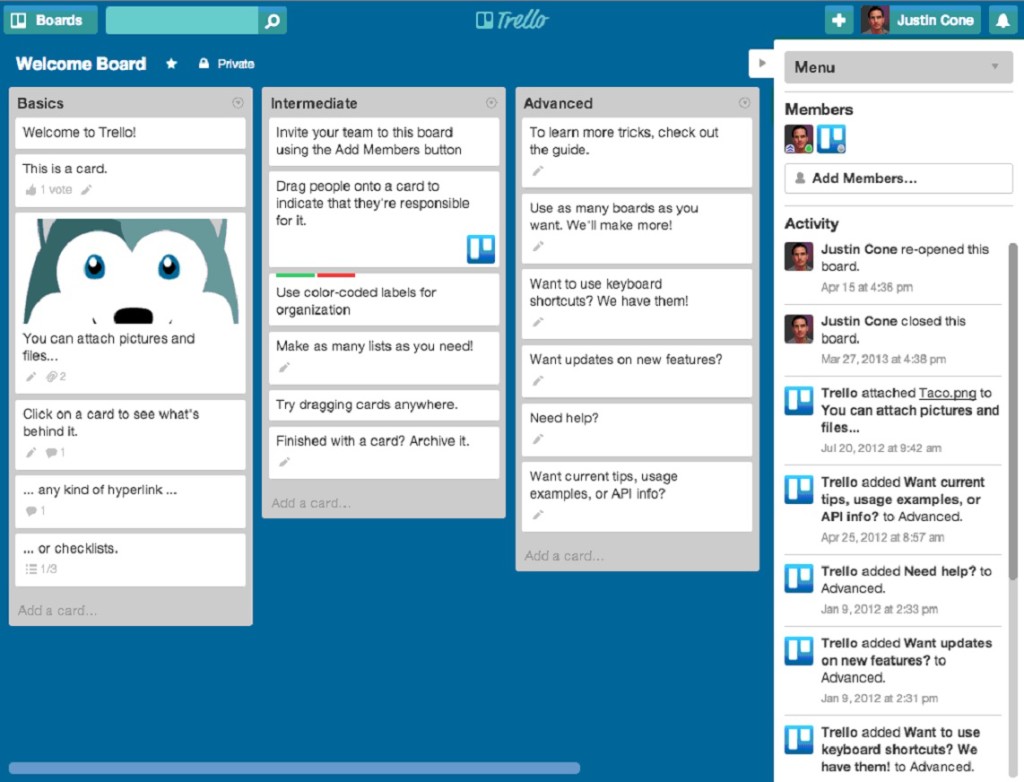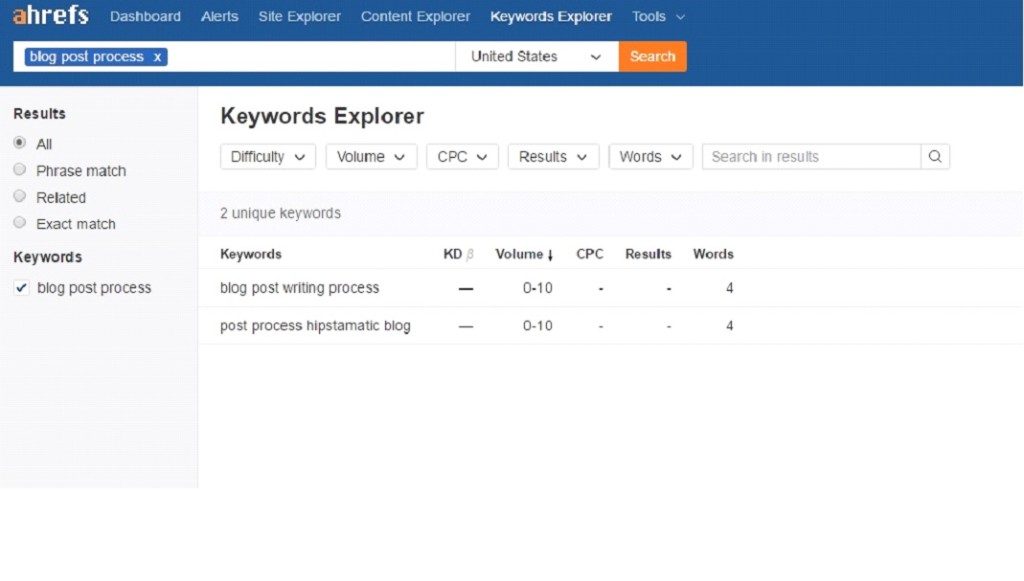
The 6 Key Blogging Tools We Use to Write 3 Long-Form Articles Every Week
by Benjamin Brandall
It’s not easy staying on top of the content game. Not only do you have to write material which is consistently high quality (which can take a lot of time and effort), but you have to do so several times a week or more; even experienced teams can struggle to keep up with a demand that relentless. All of this has to be tackled before you even think about social media marketing.
“Digital Marketing, Social media, branding, content marketing or blogging are not one time strategies. They are daily efforts with a sincere idea to add real value to end users ~ Ananth V“
Our team learnt this the hard way. We set out to publish several high quality articles which our audience could get a huge amount of value from every week, and we were met with several seemingly impossible hurdles. Considering the relatively low age of our blog and (until recently) obscure names of our main contributors (myself included), the amount of value in every single post has to be head and shoulders above any competition, meaning the research and planning for each post is intimidating, to say the least.
Thankfully, however, there are several tools which we’ve found to be vital in smoothing out our blogging checklist, which in turn allows us to publish 3 long-form articles every week. From performing keyword research with the help of a free Google tool to writing the articles themselves, these little beauties are invaluable in keeping the Process Street blog up and running as smoothly as it does.
Trello
Oh, Trello, where would we be without your project management capabilities? Still, in case you haven’t heard yet, Trello is the bee’s knees in terms of creating, tracking, and documenting your projects as your work on them.
Our marketing team, for example, has a trello board entirely dedicated to our blog articles. This board is separated into columns such as “Idea”, “Ready To Start”, “Priority”, “Work In Progress”, “Needs Peer Review”, and so on. As you can imagine, this makes it incredibly easy to update the progress of each article as it’s worked on; there’s even a calendar which you can use to plan out your upcoming content releases!
However, the most powerful part of how we use Trello is the ability to combine it with our own app. Doing so allows us to run checklists for every step of the content creation process, such as the blog pre-publish checklist which needs to be complete before sending anything into peer review.
Google Keyword Planner
There’s next to no point in creating content if you’re not going to target a keyword and attempt to rank well for it. However, in order to do so, you’re going to need to perform your keyword research process and figure out exactly what the best term to target will be for each and every piece of content. After all, a post that isn’t keyword optimized is a missed SEO opportunity.
To this end, Google Keyword Planner is absolutely vital to our efforts. This free tool allows us to bulk analyze hundreds of keywords at a time to get a sense of their monthly search volume, and therefore their potential value.
You need to be a little careful when using GKP, however, as you can’t just take the results you get at face value. The time saved by using it is truly astounding, but you still need to be able to put everything in the context of your audience’s intent and how easily you are able to generate backlinks for your content.
In order to figure this out, the top keyword candidates from your GKP search need to be put under scrutiny from another key blogging tool…
Ahrefs
Ahrefs is fantastic for getting a bigger picture on the strength of the current search results for a few select terms at a time. For example, let’s say that you’re not sure whether you want to target “blog post process” or “blog publishing process”; for the sake of argument let’s say that the former has a higher volume, but the latter a lower difficulty according to GKP.
Ahrefs’ Keyword Explorer breaks down the results which currently rank for your keyword and give you a more precise measure of the difficulty in ranking for that term. With this more accurate figure, we can then Google the keyword itself to see the kinds of results which are giving that difficulty (eg; product pages, random weak pdf documents, etc) and judge for good whether we want to be targeting it with our next piece of content.
Again, this isn’t an exact science, but having Ahrefs to back up our decision with a more reliable keyword difficulty breakdown goes a hell of a long way in making sure that any effort we take writing the post and later promoting it doesn’t go to waste on a useless keyword.
Workflowy
So, now that we’ve gotten our keyword sorted, we can begin to plan out the post itself. Here our team were looking for a tool which allows us to quickly jot down the rough outline of our upcoming post in order to make sure that our structure is sound before we spend hours writing it. This is where Workflowy comes in.
Whilst there’s a little variance when it comes to the specific members of our team, the majority utilizes Workflowy to jot down the outline of our upcoming posts. This will usually consist of the title and headings (from H1 to H3 or 4) laid out in bullet point lists to make sure that the post has a clear valuable structure, and can be scanned easily by our audience. After all, if a post isn’t scannable, the vast majority of readers will judge it as not worth their time.
One or two members of our team go one step further with Workflowy, using it to document quick notes during our twice weekly meetings too.
Grammarly
Grammarly is every writer’s best friend. It’s essentially a spellchecker which tracks your typing over almost anything you do; emails, blog posts, Slack messages, you name it. By clicking on any word or phrase which Grammarly thinks is incorrect (they’re automatically underlined with red) you can quickly choose a suggested alternative, saving a huge amount of time in the editing process.
Admittedly, Grammarly isn’t infallible; you’ll still need to double check your writing once you’re finished. However, the number of mistakes which it catches is admirable, especially for an app with a free Chrome plugin.
Not only that, but every week our team gets an email from Grammarly telling them how many words they’ve written that week, along with how accurate they were on the whole. Again, whilst this isn’t entirely accurate, it’s a nice way of giving our team a pat on the back for a good week’s work.

Google Docs
Google Docs has come under a little scrutiny by our team as of late, but it’s still the go-to for most of our writers. Real-time collaboration is fantastic for allowing peer reviews to take place quickly, and can give the writer more insight into what they’re doing wrong, allowing them to improve at a greater rate.
Not only that, but the local folder of Google Drive is brilliant for making sure that our team will always have access to their library of work; this is especially important when considering that we’re an entirely remote team.
There you have it; the 6 key blogging tools which help keep our team running at a steady pace of 3 long-form articles every week.
Do you have any tools which you swear by?
What do you think to our choice?
Let me know in the comments below!
Benjamin Brandall ~ Tweet @benjbrandall
*****
Related posts:
- 12 things to do with your blog to build it into a power brand
- 14 tips to boost your content marketing efforts for your digital marketing campaigns
- 3 Minutes or Less to read: Content marketing and social media
- Google Adwords, keyword planner and how do they work
- Live Blogging Workshop: 1.89 Million impressions: Learn Social media digital marketing courses
- Blogging and digital marketing – Corporate Training across 130 participants with hands-on Social media course learning tools and process
*******
********
For customized corporate training programs to learn social media and digital marketing: Reach us on Our Corporate Training page here Or Our Award winning best digital marketing CEO Ananth V here
*****
Reach Us Online: Techdivine On Facebook – Twitter – Website






